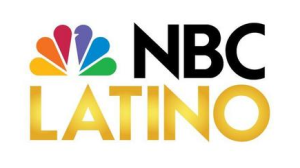Latinos Increasingly in Favor of Gay Marriage

 By Sandra Lilley, NBCLatino
By Sandra Lilley, NBCLatino
When it comes to gay marriage and Latino public opinion, the last few years have seen dramatic changes, according to Ingrid Duran. She and her partner, Catherine Pino, are one of the nation’s most visible – and powerful – gay Latina couples.
“When the Congressional Hispanic Caucus put out their 9 principles for immigration reform and marriage equality was number two on the list – that’s a big deal,” says Duran, who co-founded a lobbying and consulting group with Pino called D&P Creative Strategies. ”When you see that 62 percent of Latino Catholics support allowing gay couples to marry, it’s a huge shift,” Duran states, referring to polling they conducted as part of their Familia es Familia campaign, a gay rights public service campaign.
As the Supreme Court heard arguments today for and against California’s Proposition 8 – the state’s ban on same-sex marriage – the reality is that Latino public opinion – as well as the position of many Latino leaders – is increasingly supportive of gay marriage.
“When one group is denied the dignity and the right to marry, it diminishes us all,” said National Council of La Raza’s (NCLR) president and CEO Janet Murguía, standing in front of the Supreme Court today.
“What the Supreme Court will hear this week is what lower courts have already affirmed – no American should be denied equal protection under the Constitution,” stated California Democratic Congressman and Democratic Caucus chairman Xavier Becerra.
Last year the Pew Forum on Religion and Public Life and Pew Hispanic found that for the first time since conducting its National Survey of Latinos, more Hispanics favored allowing gays and lesbians to marry legally (52 percent) than oppose it (34 percent). An ABC News election exit poll found 59 percent of Hispanic voters said they support same-sex marriage. A recent Latino Decisions poll found 64 percent of Hispanic voters said comprehensive immigration reform should include the same rights for gay couples as heterosexual couples.
Reflecting this support, Murguía added today in the Supreme Court steps that “our policies should not separate families due to their immigration status, sexual orientation or anything else,” she stated. NCLR notes that in nearly one-half of the binational LGBT couples facing separation, one of the partners is Latino.
In discussing the possible Supreme Court decisions on gay marriage, Latina constitutional scholar Enid Trucios-Haynes says shifting public opinion does have an impact on the nation’s highest Court.
“In 1896, for example, equality under the Constitution allowed segregation, but in 1954, the Court found equality under the constitution could not permit segregation,” explains Trucios-Haynes, a professor of law at the Louis D. Brandeis School of Law at the University of Louisville.
In the event the Supreme Court upholds California’s gay marriage ban as well as the Defense of Marriage Act, Trucios-Haynes says laws in support of gay marriage will most probably start being enacted state by state, as public opinion increasingly supports this. ”It will take longer, but it might be faster than many of us think it would be,” she remarks.
“This is about families, and if we value families, this is about the 40 thousand children (in California) whose parents are living in a committed relationship and who should be able to get married,” says Los Angeles Mayor Antonio Villaraigosa, who said today on MSNBC he has supported gay marriage since 1994.
Inside the Supreme Court, Justice Sonia Sotomayor asked defenders of California’s same-sex marriage ban what is the harm done by allowing same-sex couples to marry. NBC News’ Pete Williams says that most members of the Court, including its more liberal Justices, seemed to hint they might not issue a sweeping ruling on same-sex marriage but might limit it to California.
In the meantime, Ingrid Duran hopes the Supreme Court affirms the legal basis for gay marriage in the U.S.
“It’s great that public opinion is changing, but that still doesn’t impact mine and Catherine’s ability to get married in our state of Virginia; right now it is illegal for us to get married and adopt a child,” she says. Duran says it has been difficult – and costly – to set up things like health care proxies so that if something happens to one of them, the other partner is allowed rights which come effortlessly to a married couple.
“The laws really have to change,” says Duran.
This article was first published in NBCLatino.
Sandra Lilley loves being an active part of our “national conversation”, on everything from politics, education and the economy to the latest books and people in the news. Sandra started out in Telemundo-NY as a general assignment reporter and later News Director. She was also a Dayside Managing Editor at MSNBC and a Planning Editor for the NBC Domestic Desk. Born and raised in Puerto Rico, Sandra studied history at Brown University, and currently lives in New Jersey with her family. Sandra hopes our site inspires and informs Latinos as they work toward their family’s “American Dream.”
[Photo by stevendamron]




